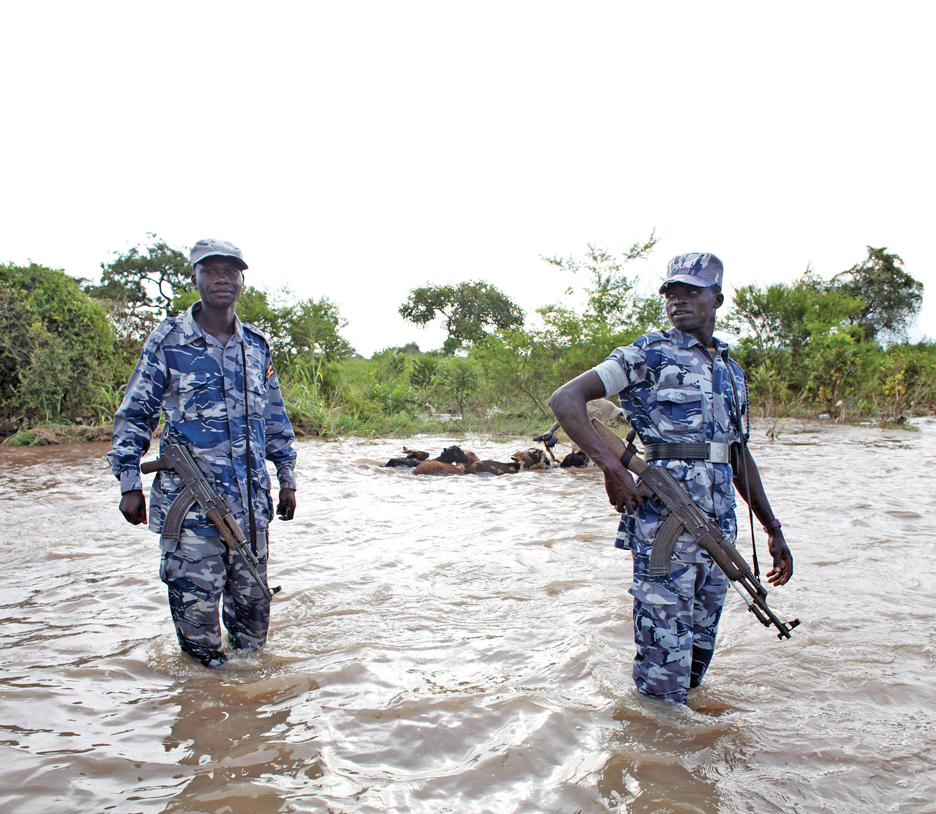U.S. Africa Command Staff
Not all security threats involve weapons. From droughts to earthquakes to floods, disasters across the globe often are deadlier and less predictable than warfare.
Africa is no exception. From 1980 to 2008, there were 77 events categorized as disasters affecting nearly 600,000 people each year and causing more than $100 million in annual economic damage to the continent.
When disaster strikes, security forces are usually the first to respond. They have planes to deliver aid, helicopters to rescue those who are stranded, medical personnel to provide emergency aid, and engineers to repair roads and bridges. They also have the training to keep the peace when citizens become desperate and fearful.
In addition to these traditional roles, African militaries are now playing key roles in disaster preparedness and mitigation. In countries such as Uganda, military officers are spearheading the use of emergency operations centers in which disasters can be anticipated and tracked, and civilian leaders can lead a coordinated response. Soldiers also are part of advanced planning for pandemics to support medical efforts and preserve order in case of a disease outbreak. Military and civilian disaster response experts are using technology to alert citizens, track weather and geological data, and pinpoint the areas of greatest need in their countries.
Disaster response must be a united effort. Militaries play a crucial role in support of civilian authorities, first responders, nongovernmental organizations and the private sector. Through this multi-agency, integrated system, African nations are finding that disasters can be better managed. Nature will always be unpredictable, but by developing disaster plans, allocating resources, and holding exercises, the impact of the world’s worst disasters can be blunted and lives can be saved.


Comments are closed.